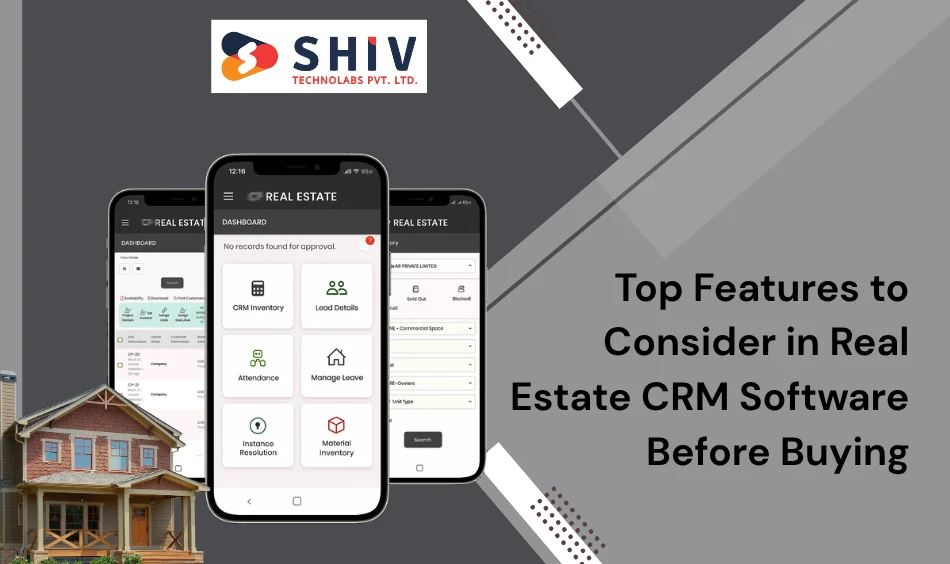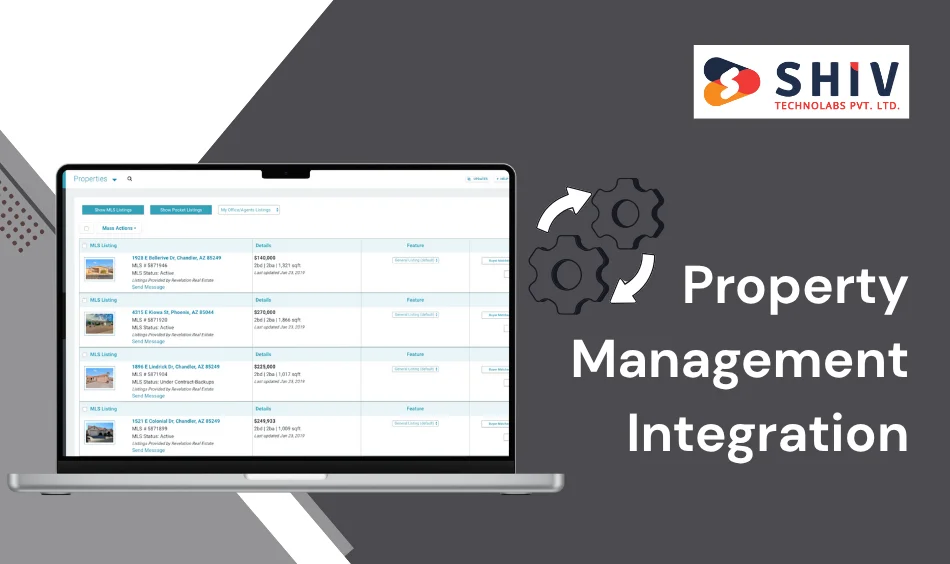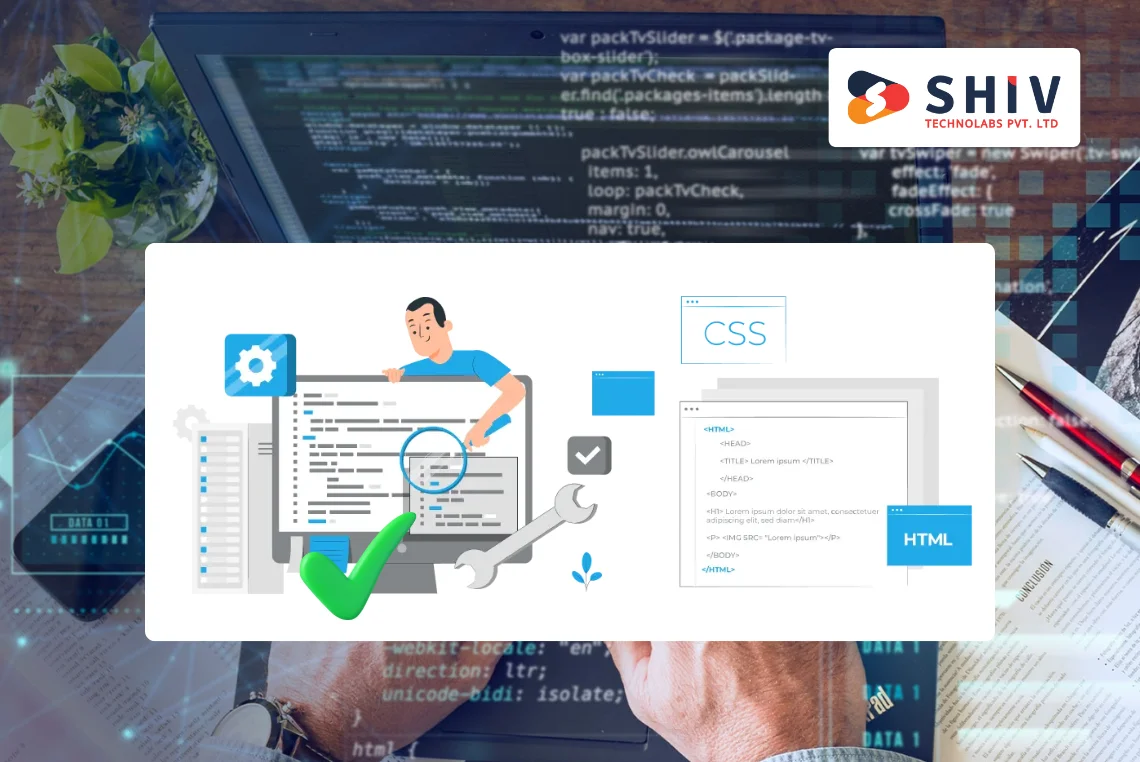Table of Contents
Real estate is a people-based business. The ability to succeed depends on how you treat your clients, leads, and properties. This is where CRM software for real estate becomes crucial. The right system can completely transform your business operations.
Choosing the wrong real estate CRM software can cost you time, money, and clients. Many agents make hasty decisions and later regret them. The global real estate CRM software market size was $4.22 billion in 2024 and is projected to reach $11.89 billion by 2033. This increase highlights the importance of these tools.
There are plenty of choices to make, so how do you choose the correct option? This guide will help you understand what features matter most. We’ll cover everything from lead management to integration capabilities. By the end, you’ll know exactly what to look for in real estate CRM solutions.
Why Real Estate CRM Software Matters?
The real estate industry is becoming more competitive every year. Agents who use CRM systems have a significant advantage. Studies show that 72.5% of real estate agents now have a CRM system in place. Those who don’t are falling behind quickly.
CRM usage in real estate can lead to a 50% increase in productivity. This means more time for client interactions and less time on paperwork. The average CRM user adoption rate among real estate agents is 73%, indicating that these tools are highly effective.
Top Features to Consider in Real Estate CRM Software Before Buying

Here are the 10 features to check before you invest in a CRM Software development. Going through it can certainly provide you with an effective Real Estate CRM Software:
1. Lead Management and Tracking
Comprehensive Lead Capture
Your real estate CRM software should automatically capture leads in various ways. These are your site, your social media, your campaign email, and your referrals.
| Lead Source | Importance Level | Integration Required |
| Website forms | High | Yes |
| Social media | High | Yes |
| Email campaigns | Medium | Yes |
| Referrals | High | Manual entry |
Look for systems that can:
- Automatically assign leads to specific agents
- Track lead sources and conversion rates
- Set up automated follow-up sequences
- Score leads based on their likelihood to convert
Lead Nurturing Capabilities
The best real estate client management software includes automated nurturing features. These help you stay in touch with prospects over time.
Essential nurturing features:
- Email drip campaigns for different buyer types
- Automated birthday and anniversary reminders
- Property match notifications based on client preferences
- Customizable templates for common communications
2. Property Management Integration

Your CRM should integrate seamlessly with MLS systems. This eliminates duplicate data entry and keeps everything synchronized.
Key property management features:
- Automatic MLS synchronization
- Property photo and document storage
- Showing schedule management
- Price change notifications and alerts
CRM for Property Management
If you manage rental properties, look for additional features:
- Tenant screening and application processing
- Lease management and renewal tracking, Maintenance request handling
- Rent collection and accounting integration
3. Communication Tools
Modern clients expect to communicate through various channels. Your CRM should support all of them.
| Communication Type | Client Preference | CRM Integration |
| 45% | Essential | |
| Phone calls | 30% | Call logging |
| Text messages | 20% | SMS integration |
| Social media | 5% | Social monitoring |
Communication features to look for:
- Built-in email marketing tools
- SMS text messaging capabilities
- Call logging and recording
- Social media integration
- Video conferencing integration
Automated Communications
Automation is a time-saving and consistent follow-up tool. Look for systems that can automatically send:
- Welcome emails to new leads
- Property updates to interested buyers
- Market reports to past clients
- Holiday greetings and seasonal messages
4. Mobile Accessibility
Real estate agents work on the go. Your CRM must have a robust mobile app. Mobile CRM access boosts sales productivity by 14.6%, making this feature essential.
Mobile features checklist:
- Full CRM functionality on smartphones
- Offline access to contact information
- Photo capture and document upload
- GPS integration for location-based tasks
- Push notifications for important updates
Cloud-Based Solutions
Cloud-based systems offer better mobility and data security. They also provide automatic backups and updates. Look for CRM solutions that offer:
- Real-time data synchronization
- Multi-device access
- Automatic software updates
- Secure data storage and encryption
5. Analytics and Reporting
Understanding your business performance is crucial for growth. Your real estate CRM software should provide detailed analytics.
| Metric Type | Why It Matters | Frequency |
| Lead conversion rates | Measure effectiveness | Monthly |
| Sales pipeline value | Track potential revenue | Weekly |
| Agent productivity | Identify top performers | Daily |
| Client satisfaction | Maintain relationships | Quarterly |
Essential reports to look for:
- Lead source performance analysis
- Sales pipeline and forecasting reports
- Agent activity and productivity metrics
- Client interaction history and preferences
- Marketing campaign effectiveness data
Customizable Dashboards
Different team members need different information. Look for systems that offer:
- Role-based dashboard customization
- Drag-and-drop report builders
- Real-time data visualization
- Export capabilities for external analysis
6. Integration Capabilities
Other tools that you already use should be compatible with your CRM. This will have a smooth workflow and less data silo.
Common integration needs:
- Email marketing platforms (Mailchimp, Constant Contact)
- Accounting software (QuickBooks, Xero)
- Social media management tools
- Document storage services (Google Drive, Dropbox)
- Video conferencing platforms (Zoom, Microsoft Teams)
API Availability
For custom integrations, ensure your CRM offers:
- Open API for developers
- Webhook support for real-time updates
- Custom field creation capabilities
- Data export and import tools
7. Security and Compliance
Real estate involves sensitive financial and personal information. Your CRM must provide robust security features.
Security requirements:
- SSL encryption for all data transfers
- Regular security audits and updates
- User access controls and permissions
- Data backup and recovery procedures
- GDPR compliance for international clients
Compliance Features
Look for systems that help with:
- Document retention policies
- Audit trail maintenance
- Privacy policy management
- Consent tracking and management
8. Scalability and Pricing
Your business will grow over time. Choose a CRM that can scale with you.
| Business Size | User Count | Features Needed |
| Solo agent | 1–2 users | Basic lead management |
| Small team | 3–10 users | Team collaboration |
| Medium brokerage | 11–50 users | Advanced analytics |
| Large enterprise | 50+ users | Custom workflows |
Scalability considerations:
- Flexible user licensing options
- Storage capacity limitations
- Performance with large databases
- Administrative controls for large teams
Pricing Structure
Understand the total cost of ownership:
- Monthly or annual subscription fees
- Setup and implementation costs
- Training and support expenses
- Integration and customization charges
- Data migration costs
9. Training and Support
The most excellent software is worthless to your team who does not understand how to use it. Find providers that will provide:
- Comprehensive onboarding programs
- Video tutorials and documentation
- Live training sessions
- Certification programs for power users
Ongoing Support
Choose providers with strong support systems:
- 24/7 technical support availability
- Multiple support channels (phone, email, chat)
- Dedicated account managers
- Regular software updates and improvements
10. Customization Options
Every real estate business operates differently. Your CRM must become flexible with your processes, and should not force your processes to change.
Customization features:
- Custom fields for unique data needs
- Automated workflow builders
- Personalized email templates
- Custom report generation
- Role-based access controls
Conclusion
Selecting the right real estate CRM software is one of the most crucial decisions that will define your business in the upcoming years. The software should increase your productivity, foster stronger relationships with clients, and provide valuable insights into your business performance.
Do not forget about your needs, budget, and development plans. Once you require the services of professional developers in the field of real estate software development, it is essential to seek experienced developers. Shiv Technolabs is a provider of end-to-end services for software development, enabling you to develop custom solutions tailored to your business needs.
Contact us today to develop modern real estate CRM software for your business that attracts leads and gets your brand noticed.
























